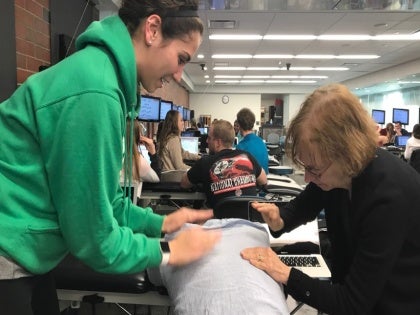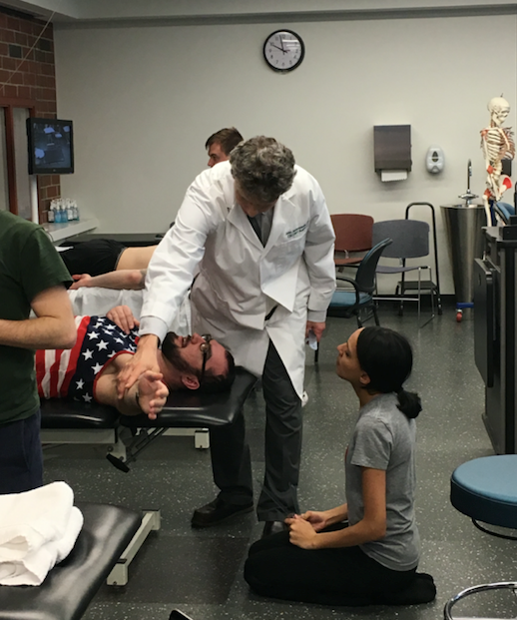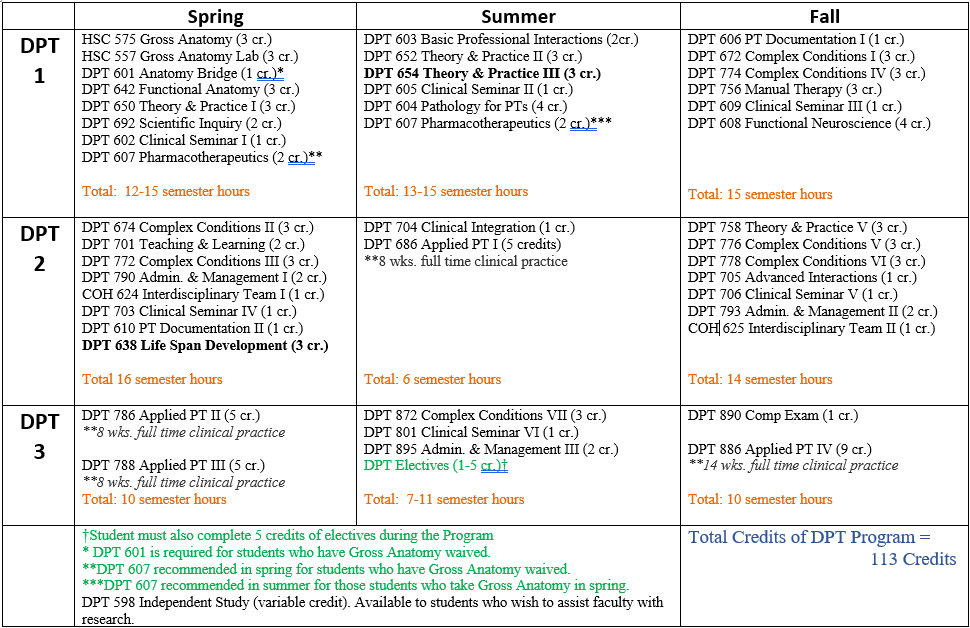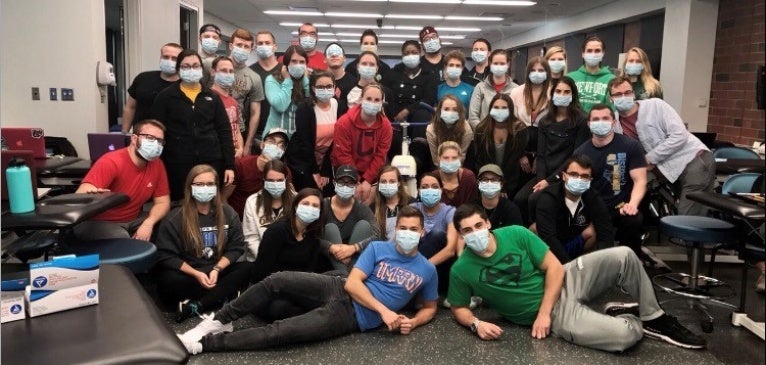Physical Therapy
Mailing Address and Campus Location
Mailing Address
Cleveland State University
Doctor of Physical Therapy Program
2121 Euclid Avenue, JH 238
Cleveland, OH 44115-2214
Campus Location
Julka Hall
2458 Euclid Avenue, JH 238-274
Phone: (216) 687-3566
Fax: (216) 687-5549
DPTprogram@csuohio.edu
DPT Curriculum
Department of Physical Therapy Curricular Philosophy
Physical therapy is an integral component of health care, and a profession that promotes health and optimal function across the life span. Using the International Classification of Functioning, Disability, and Health enablement (ICFDH) and Patient/Client Management models as the theoretical bases of care, the physical therapist relates therapeutic activities to body functions and structures, while considering the context of individual differences, culture, social setting, psychological influences, and economic constraints. Focus of care includes attention to ‘best practice’ examination and interventions as well as prevention, health promotion and wellness activities.
Our curriculum is based on a liberal studies foundation. A professional entry-level education in Doctor of Physical Therapy includes gaining a unique body of knowledge and skills, including; the application, analysis and integration of theories and therapeutic principles; the ability to teach, interact and communicate effectively; the use of evidence to support practice decisions; the ability to function effectively as a member of a team; the ability to solve complex problems and to use discriminatory critical thinking, and the capability to participate in quality improvement activities and appropriately utilize infomatics.

The faculty believes that the development of professional integrity, values and behaviors is an essential element of clinical preparation. Therefore, emphasis is placed on social responsibility, ethical behavior, professional behavior and professionalism throughout the program.
The curriculum integrates theoretical and practical knowledge and develops critical thinking skills required to respond to trends or changes in physical therapy practice, especially within a culturally diverse, urban health care context. In addition to the core behavioral and clinical sciences, elective courses enable students to explore areas of special interest.
The faculty expects that students will enter the professional program as adult learners with unique characteristics, life experiences, interests and learning styles. Therefore, the Program promotes teaching methods that encourage students to be self-directed individuals, active learners and to take responsibility for their own education. Graduates are expected to be reflective practitioners and leaders, as well as to demonstrate their ongoing commitment to the physical therapy profession through the continued professional development and pursuit of life-long learning activities.
Department of Physical Therapy Outcome Objectives
Upon completion of the program, graduates will practice physical therapy in a variety of settings, in order to promote optimum health across the life span and will:
- Apply the ICFDH and Patient/Client Management Models in the delivery of physical therapy services.
- Integrate biological, physical, ethical, social an psychological principles and theories to assist others to optimize their capacity to function within the environment.
- Use interaction and communication skills in all professional relationships.
- Use critical thinking and discriminatory judgment when making decisions in the practice of physical therapy.
- Value and continuously develop the existing and evolving roles of the physical therapist as a teacher, researcher, consultant, administrator, and advocate.
- Practice in a reflective fashion and pursue ongoing professional development and life-long learning experiences.
- Demonstrate a sense of responsibility in regards to contemporary health issues and participate in activities that advance physical therapy and serve the community.
Curricular Themes:
The CSU DPT Program emphasizes physical therapy service delivery within a culturally diverse, urban context:

- Patient centered care (using ICFDH & Patient Management models)
- Life span perspective
- Ethical behavior, professional behavior, professionalism (core & program values)
- Cultural competency
- Effective interactions/communication, including teaching skills
- Evidence based practice
- Health promotion, prevention & wellness
- Professional development & life long learning
DPT Curriculum Table


Mailing Address and Campus Location
Mailing Address
Cleveland State University
Doctor of Physical Therapy Program
2121 Euclid Avenue, JH 238
Cleveland, OH 44115-2214
Campus Location
Julka Hall
2458 Euclid Avenue, JH 238-274
Phone: (216) 687-3566
Fax: (216) 687-5549
DPTprogram@csuohio.edu